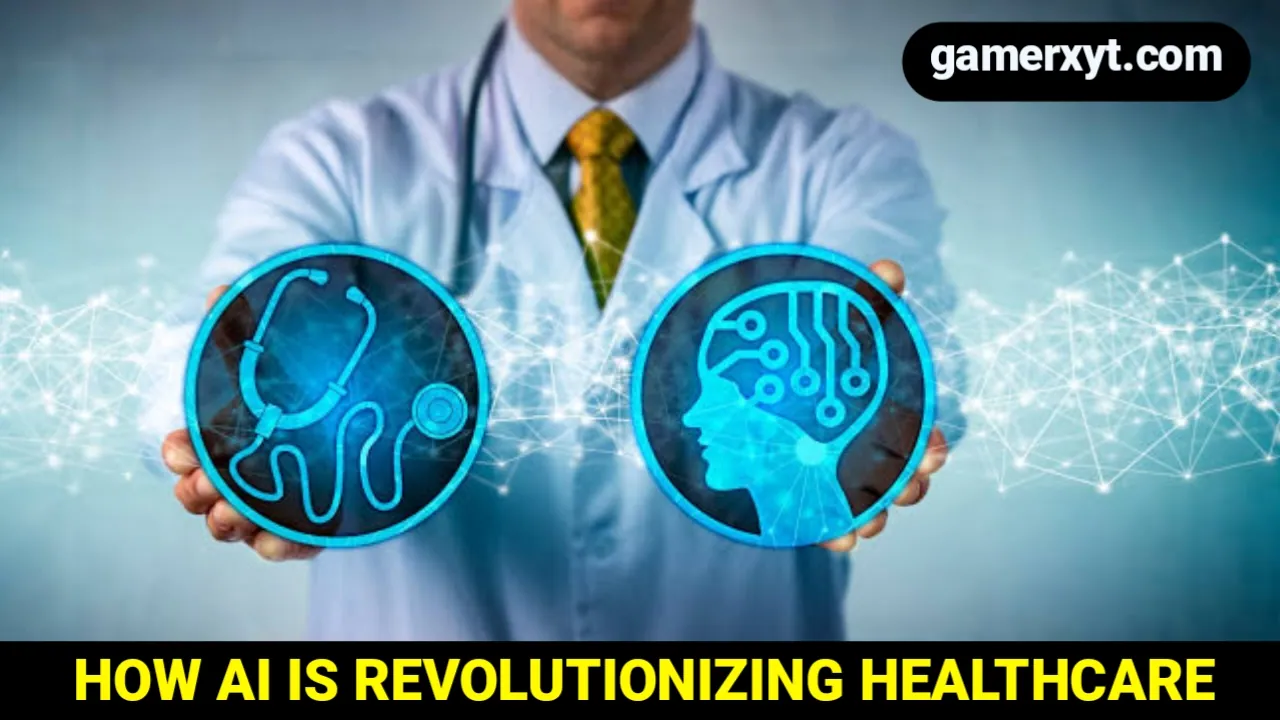How AI Is Revolutionizing Healthcare⁶How AI Is Revolutionizing Healthcare – Artificial intelligence (AI) has transformed industries from transportation to finance. Now the healthcare sector is leveraging AI to improve nearly all aspects of patient care. From speeding up medical research to offering more accurate diagnostics, AI is revolutionizing healthcare in profound ways.
AI Is Enhancing Medical Imaging and Diagnostics
AI algorithms can analyze medical scans and detect abnormalities earlier and more reliably than the human eye. AI image recognition technology can process hundreds of images in the time it takes a doctor to analyze just one. This allows diseases to be spotted sooner, improving treatment outcomes. AI is revolutionizing healthcare by acting as a diagnostic support tool for doctors.
Research teams have developed AI systems capable of detecting diseases from medical images with over 90% accuracy for conditions like liver lesions, breast cancer, and neurological disorders. As the algorithms process more training data, the systems will become even more precise. AI is set to transform how diagnoses are performed.
AI Is Revolutionizing Healthcare by Accelerating Medical Research
Sifting through vast amounts of health data to identify patterns is enormously time-consuming for researchers. AI software can analyze huge datasets faster than humans, freeing up researchers to focus on other critical tasks. This data includes genetic profiles, clinical trial results, and patient records.
By automating the most tedious research tasks, AI is revolutionizing healthcare by radically accelerating the pace of discovery. For example, in 2020, AI helped identify six potential Covid-19 treatments in just one day by screening over 2,000 existing drugs. The algorithm did in hours what would have taken researchers weeks.
AI Is Revolutionizing Healthcare Through More Precise Treatment Plans
The most effective treatment plans consider the patient’s unique genetic makeup. But with affordable genome sequencing now a reality, making sense of each patient’s genetic data is challenging. AI tools can examine millions of DNA datapoints and pinpoint the most suitable therapies.
AI-generated treatment plans based on a patient’s genomic profile are revolutionizing healthcare by enabling more targeted, personalized medicine. Research indicates AI-optimized treatment plans can improve patient outcomes by 30-40% for disorders like cancer. The use of AI promises to unlock precision medicine.
AI Is Revolutionizing Healthcare by Predicting Disease Risks
Your genetic code and lifestyle factors determine your risk profile for various conditions. But even doctors struggle to account for the thousands of variables that affect an individual’s disease vulnerability. AI tools can integrate data like family history, biometric readings, diet, and activity levels to calculate risk likelihood.
AI-powered apps and diagnostics promise to provide patients with real-time monitoring of how lifestyle decisions influence their health risks. By promoting preventative care, AI is revolutionizing healthcare from reactive to proactive. If emerging conditions are predicted sooner, outcomes can be dramatically improved through early intervention.
The Role of AI Healthcare Assistants
Chatbots and virtual health assistants powered by AI are revolutionizing healthcare delivery. These AI agents can offer medical advice, book appointments, provide test results, and handle many other administrative tasks.
Virtual health assistants are available 24/7, eliminating the need to wait on hold. They also ease the strain on overworked hospital staff. Additionally, AI chatbots can understand speech and language to interface effectively with patients.
As the algorithms grow more advanced, virtual health assistants promise to become indispensable tools improving convenience and access to care. They represent a paradigm shift in healthcare experiences for both patients and providers.
Risks and Challenges for AI in Medicine
While emerging quickly, AI healthcare tools do have limitations hospitals must consider. Ethical issues around data privacy and informed consent are also raised by AI. If inappropriately deployed, AI could compromise rather than improve care standards in some contexts.
However, most researchers remain enthusiastic about AI’s huge potential if introduced responsibly. In fact, a recent study found that 63% of healthcare stakeholders believe AI will have a positive impact on patient outcomes by 2023. Appropriate governance is critical, but AI is undoubtedly set to revolutionize medicine.
The Future of AI in Healthcare
AI is transforming medical practices by enhancing diagnostic accuracy, accelerating pharmaceutical research, tailoring treatment plans, and automating administrative tasks. Patients further stand to benefit from disease risk monitoring tools and virtual health assistants.
While still early, if current trends continue, AI is revolutionizing healthcare dramatically. As the technology improves and becomes more pervasive, AI may soon become integral to healthcare systems around the world. Ultimately, AI promises to make medicine more predictive, preventative, precise and patient-centric. Healthcare quality worldwide stands to improve significantly thanks to rapid advances in AI technology.
Conclusion
AI is rapidly transforming nearly every facet of healthcare, from research to patient treatment. Machine learning algorithms can unlock insights in vast medical datasets that would take humans lifetimes to uncover manually. AI promises more accurate diagnoses, hyper-personalized care plans, advanced warning of emerging conditions, and 24/7 access to health support. However, the technology is still in its early stages. Appropriate governance and ethics frameworks will be critical as AI becomes further embedded in healthcare. If developed responsibly, AI could make medicine preventative, predictive, precise, and patient-centric to an unprecedented degree. In the years ahead, AI will undoubtedly become integral to delivering improved health outcomes across patient populations. Though some challenges remain, AI is undoubtedly revolutionizing the future of healthcare through enhanced diagnostics, tailored treatments, accelerated research, virtual assistants, and sophisticated risk monitoring. Every patient stands to benefit from the promise of AI medicine. We are witnessing merely the earliest applications of transformative technologies poised to reshape healthcare systems globally.
